Have you ever told yourself, “I want to feel loved by someone”? The statement is much more common than you think since the desire to feel loved is a fundamental human need. Wanting to feel loved by your husband, partner, friends, or family is a natural desire and an essential part of your emotional well-being. It plays an important role in your feelings of self-esteem and self-confidence. Unless you are in an incompatible relationship, one of the reasons you feel you are not receiving love in your relationship stems from your inability to love yourself.
In this article, we speak to Jui Pimple (MA in Psychology), a trained Rational Emotive Behavior Therapist and a Bach Remedy practitioner who specializes in online counseling. According to Jui, this inability to love ourselves stems from a lack of self-acceptance. Self-acceptance requires learning to accept ourselves the way we are, including our thoughts, feelings, and physical self. Let’s go about this journey together.
Why Do I Struggle To Feel Loved?
Table of Contents
We all need to be loved, whether or not we admit it. Wanting to feel loved by your husband or partner and not getting that love can be painful, and life can be lonely and empty without it. A recent statistical study shows that 43% of people between the ages of 18 to 25 report that they feel unloved; 80 % of people below the age of 18 responded that they feel lonely.
Feeling unwanted or unloved is an emotion that can also be caused and influenced by several other factors. Recognizing the validity of these feelings and how they can affect you is important. The causes of these feelings can be varied and unique to you as an individual but with several common underlying factors. The answer to the concern – how to feel loved in a relationship – can be more easily understood if one were to gain an understanding of those factors.
1. Past experiences contribute to self-esteem issues
Our past experiences can powerfully impact our ability to feel loved. Romantic relationships that have gone sour, romantic partners that have cheated, childhood neglect, and other emotional trauma can cause wounds to our psyche. These wounds act as barriers to our ability to feel loved.
Related Reading: 10 Things To Do If You Are Feeling Unappreciated In Your Relationship
2. In turn, low self-esteem doesn’t make you feel appreciated
A negative self-image can make you feel that you are undeserving of love. “How can your partner love you if you do not love yourself?” – People say this sometimes. It’s unfair because having low self-esteem is not a ‘fault’ and it’s no reason for someone to not love you.
Low self-esteem is merely one of the reasons that one FEELS unloved. Even when showered with love and affection, it can make you feel unworthy of it all.
3. You may have an inability to be vulnerable
Being vulnerable with your partner or loved ones is essential to giving and receiving love. But the fear of getting hurt can prevent you from becoming vulnerable and sharing openly with those closest to you. You may even find difficulty in expressing appreciation toward others, which in turn prevents you from engaging completely with your partner. All of this makes you feel isolated from them, and thus impacts the way you perceive yourself.
4. Having unrealistic expectations can make you feel like you don’t belong with others
Unrealistic expectations of what love should be like and how a person in love should behave or feel, often colored by today’s media, can lead you to be dissatisfied in a real-world relationship. This dissatisfaction may be a cause of your inability to feel loved.
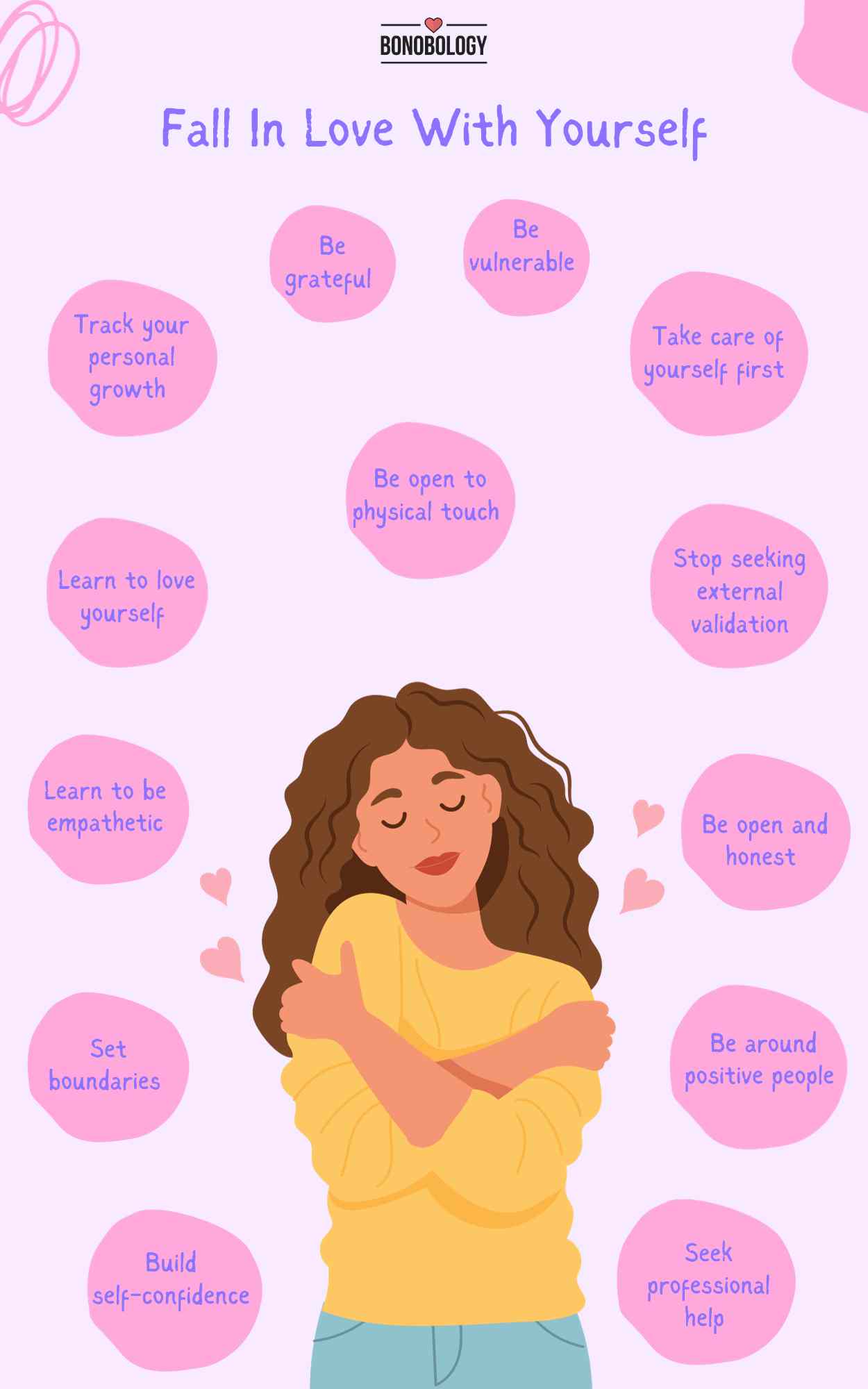
5. Poor communication skills
Poor communication skills can cause misunderstanding, exacerbating conflicts and affecting a relationship severely. It is essential to a healthy relationship to be able to express your feelings and needs to your partner, or to any person at all. It can otherwise be difficult for them to provide you with the support you need and deserve, thus making you feel they don’t care about you.
Related Reading: 11 Relationship Challenges Almost Everyone Has To Face – With Solutions
6. Depression and anxiety make one feel “I’m not lovable”
Depression, anxiety, and other mental health issues can negatively affect your ability to feel loved. These can lead to negative feelings of unworthiness and cause you to worry about the state of your relationship(s) constantly. It’s important to remember that “it’s not you, it’s your mental health” that’s making you feel this way.
7. Poor choice of role models can affect the way you perceive yourself
Role models, especially in our formative years, are important in shaping our self-esteem and understanding of a healthy, loving relationship. A study of 36 female college students found that participants who had a healthy role model had higher self-esteem scores than those who didn’t. A lack of positive role models can be a self-fulfilling prophecy, with their negativity coloring your outlook and self-image. Surrounding yourself with positive role models can help turn you into a person with a kind outlook toward others and yourself.
If you feel unloved and keep telling yourself, “I want to be loved by someone,” it is probably caused by one or more of these factors. Getting to the root of this belief requires self-reflection, introspection, and maybe even therapy. While the process of introspection can seem like a painful, uphill struggle, you need to start healing your broken heart. The road to feeling loved is a journey that requires patience and perseverance. With time, the positive changes that occur will be their own reward.
How To Feel Loved — 13 Simple Ways
Today, with the frenetic pace of life and skyrocketing divorce rates and breakups, more and more people live in isolation without the intimacy that comes from romantic relationships. The isolation may occur even in the company of others, be it family, coworkers, or friends. In this section, we tackle the question of how to feel loved again in a world where connections seem fragile.
1. Learn to love yourself
Self-love is the way forward if you want to learn how to feel loved again. “It all begins with self-acceptance,” according to Jui, “and for this, you must get to know yourself.” She adds:
- A balanced view of your assets and liabilities will help in this regard
- Treat yourself with kindness and compassion
- Don’t be too hard on yourself for any perceived mistakes
- You will begin to feel good and, eventually, start feeling loved with your partner(s)
2. Learn to set boundaries if you are feeling unloved
Boundaries are essential for taking care of ourselves. Too often, feelings of low self-esteem will allow us to accept behavior from family members or our partners in romantic relationships that hurts us. Learn to set healthy boundaries and communicate your feelings when required. This tells others that your needs and feelings are to be respected and you can’t be taken advantage of.
Clear boundaries in your relationships will help you feel appreciated and with the right people, the love will only grow. Jui says, “This can be done by learning to become more assertive. Assertiveness can be learned through therapy or reading self-help books.” Alternatively, you could try the following to eventually reach the goal of setting much-needed limits for others without feeling bad or worrying too much about their feelings:
- Begin by communicating just one need to your closest friend, something you’ve never said to them before
- Prioritize your self-care every day, it’ll help you be assertive in the long term
- Learn to say “no” in the mirror. Sit with the discomfort that comes with wanting to say or having said ‘no’
- Introspect: Why do you need to do that task/favor? Can someone else do it? Would you be able to do it justice if you don’t have the capacity or will? What happens if you don’t do the task?
Related Reading: Emotional Baggage – Causes, Signs, And Ways To Cope
3. Be grateful
Gratitude is a powerful tool in changing your perspective to the positive side. A study has shown that practicing gratitude lessens stress, anxiety, and depression. Practicing gratitude regularly helps you look at the positive side of life rather than the negative.
Gradually, your focus will shift from a poor self-image, and you will begin to feel good about yourself and more appreciated in your interactions with others too. Making a gratitude list daily or keeping a gratitude diary will take just a few minutes, but the results are worth it.

4. Be around positive people to feel good about yourself
“We are known by the company we keep” is a truism that one forgets. Being around pessimists and cynics automatically colors one’s perspective. According to social psychologist Professor Fredrickson of the University of North Carolina, people with a positive attitude overcome difficulties more quickly and are more resilient.
By surrounding yourself with positive people, you will see their attitude rub off on you, which will, in turn, change your perception of yourself. This will help you increase your self-esteem, and stop feeling not good enough for someone or something.
5. Build up your self-esteem and self-confidence
This is the key to feeling loved and appreciated by your partner and other loved ones. Jui says:
- Self-awareness is the key to improving your self-esteem and self-confidence. It entails being aware of your strengths and weaknesses
- You can then focus on improving your skills and talents and learn to appreciate your achievements, no matter how small they seem
- Daily positive self-talk in front of the mirror can be an effective confidence booster to help you achieve a positive attitude
- Try to take compliments with pride and not underestimate yourself
Related Reading: Will I Ever Find Love? 10 Reasons To Be Optimistic
6. How to feel loved by yourself — Stop seeking external validation
Learn to seek validation from within and not depend on your partner’s approval to feel good about yourself. Begin to trust your own judgments and opinions. A study shows that an individual’s negative self-perception and their weak beliefs in their own qualifications may be a strong factor in the occurrence of depression.
It’s easy to see why people depend on external validation when the internal source of approval is missing. And yes, we do need others to lead healthy lives and to regulate ourselves — Nothing wrong with seeking emotional validation in your circle of trusted folks. But if that becomes the only way you feel loved, then it’s a problem.
7. Be an open book
Be open and honest in your interactions, especially with your family, friends, and partners. This is an essential step to start feeling loved by others and yourself. Do not be afraid to express yourself. Effective communication is the key to forming a deeper bond with your loved ones because you’re letting them see you for who you are and love you for who you are.
If you’re unable to speak to them in person initially due to anxiety or low self-worth or because you prefer other modes of communication, you can try these:
- Writing them a letter instead of talking it out
- Practicing in front of the mirror until you get confident about expressing your feelings
- Texting them how you feel
8. Learn what taking care of yourself means
Taking care of yourself is an act of self-love, not a selfish act. Allocate time for doing things that make you feel good and at peace. Don’t allocate the majority of your day to your partner or waiting for them. You come first.
Taking care of the little things, like having a daily routine, can also go a long way in boosting your ego. Self-care is your way of telling yourself and your partner that you value yourself.
9. How to feel loved in a relationship — Learn to be empathetic
An ability to understand the feelings of others is known as empathy. By developing this ability, you can forge deeper and stronger connections with your partner, thus improving your relationship. Jui says, “Being more empathetic requires practice. My experience in practicing empathy was to put myself in the shoes of others, thinking of how I would think, feel, and react in their situation.”
Practicing empathy will make your friends, family members, and loved ones love you more. Kindness and compassion toward others, even strangers, will go a long way in making you a more emotionally intelligent person. And a less reactive one, too.
10. Track your personal growth
Focusing on your personal growth can lead to an increased sense of self-worth.
- Keep a journal where you set self-esteem goals for yourself
- This can provide you with a record of your progress and incentivise further change. This will help you feel more appreciated by yourself
- Do not be afraid of making mistakes, as they allow you to learn and grow the most
Related Reading: 9 Expert Tips To Grow In A Relationship Every Day
11. Remind yourself that it is okay to be vulnerable
Being vulnerable is not a sign of weakness but of strength. Research has shown that labeling an emotion or talking about it can help downregulate or decrease the effect of that emotion. Here’s how it helps:
- Being vulnerable means trusting your partner, even if your past experiences tell you otherwise
- Being intimate with your loved ones can help strengthen your relationships, allowing others to see you for who you are
- Ridding yourself of masks can lead to greater feelings of love and appreciation from and toward your partner
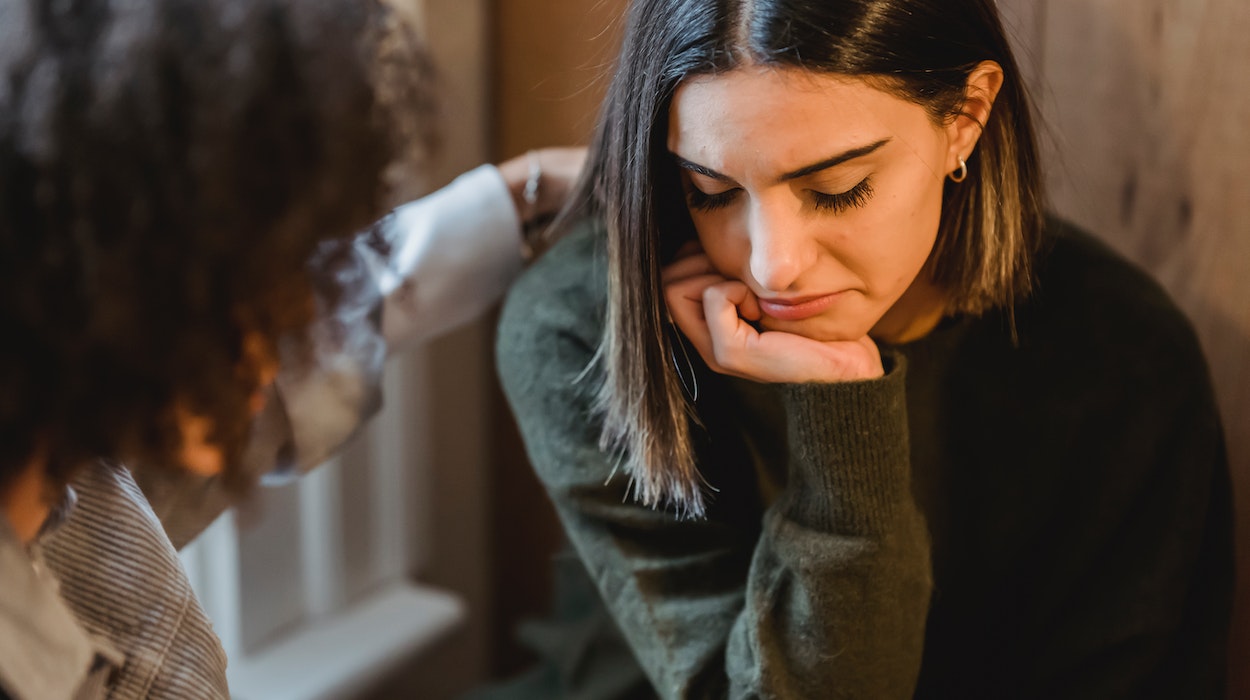
12. Physical touch is important if you want to know how to be loved by yourself
Physical touch is an important part of self-care and a vital part of any relationship. But before you move on to getting intimate with a partner, it is recommended that you explore and comfort yourself through self-touch. Get to know your body through:
- Masturbation
- Self-massage
- Hugging yourself
- Stretching and yoga
Also, ensure that you spend time regularly with your partner, quality time that helps cement the bonds of your relationship. Put away your phones and enjoy each other’s company by being in the moment and paying attention to each other. Scheduling date nights will help you spend time with each other and make you feel loved by your partner in new ways with every date. This way, the next step toward intimacy and getting comfortable with your likes and dislikes around physical touch will become a lot clearer.
Related Reading: Love Again? 10 Real Fears About Love After Divorce
13. Seek professional help
If you are struggling with self-esteem issues and are struggling to feel loved, then you can seek help from a professional too. This is especially recommended if you are depressed or have an underlying mental health condition. A therapist or counselor could show you that your feelings are valid and how to feel loved in a relationship, and provide you with the help and support you need to face these challenges. To make this journey easier, skilled and licensed counselors on Bonobology’s panel are always here for you.
By following these 13 simple steps, you will learn how to feel loved and appreciated and become more confident and self-assured.
Key Pointers
- Learning self-love by learning to accept yourself is the key to feeling loved by your partner
- Cultivating positivity by practicing gratitude and surrounding yourself with positive role models is also essential to feeling good about yourself
- Honest and open communication skills, as well as knowing and stating your boundaries, these are all vital for the maintenance of a healthy relationship where you feel appreciated
- Trust that the road to personal growth is a long one, but the end is worth your while
Discovering your worth, feeling loved by yourself and others, and feeling appreciated even during conflicts in a romantic relationship, are all parts of a journey that begins within yourself. You can build a strong sense of self-worth that will positively impact all areas of your life. Remember that you deserve to feel cherished, and by following these 13 ways, you can uncover your true value and lead a more fulfilling life.
FAQs
Everybody deserves to be loved and to feel loved, regardless of the flaws and mistakes they’ve made. However, to feel loved, you need to be able to accept yourself, and that is where your self-esteem is important. Self-esteem greatly influences how you regard yourself and how the world regards you. If you don’t feel worthy of love and constantly run yourself down, others will not respect you. Learning to appreciate yourself for who you are will go a long way to raising your self-esteem and help you realize that you are worthy of love.
Being hurt in the past by others can cause us to build protective walls around ourselves. The intent is to protect ourselves from further harm. Over time, these protective walls can keep others at bay and prevent us from receiving love, too. Coupled with feelings of unworthiness, we start to believe that we are not worthy of love and attention. This can lead to a self-fulfilling prophecy where the more we try to protect ourselves, the more we end up hurting ourselves.
Lack Of Affection And Intimacy In A Relationship — 9 Ways It Affects You
11 Ways An Insecure Partner Drains A Relationship And 5 Ways To Fix It
Your contribution does not constitute a charitable donation. It will allow Bonobology to continue bringing you new and up-to-date information in our pursuit of helping anyone in the world to learn how to do anything.

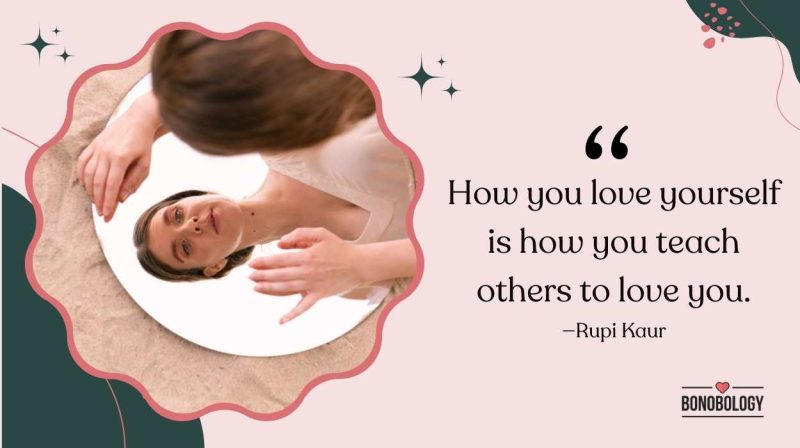

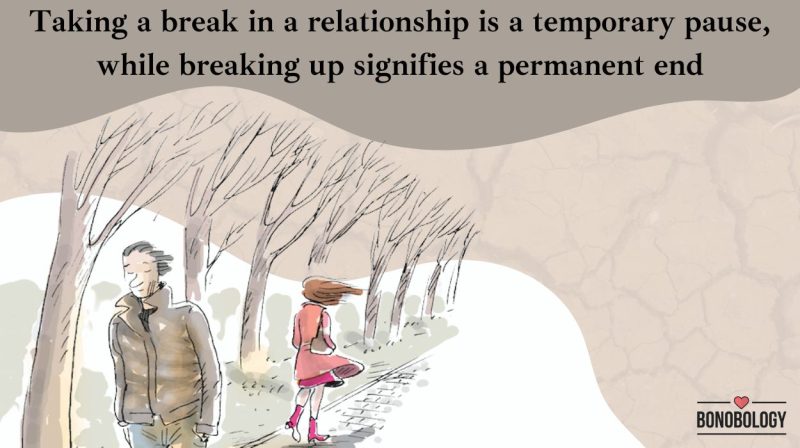


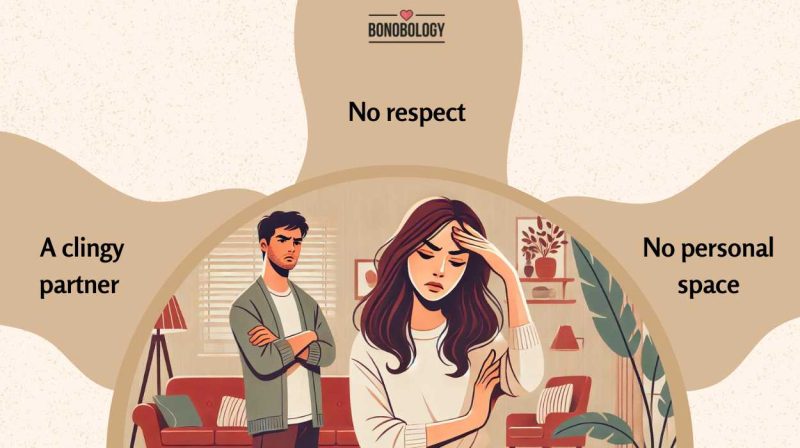
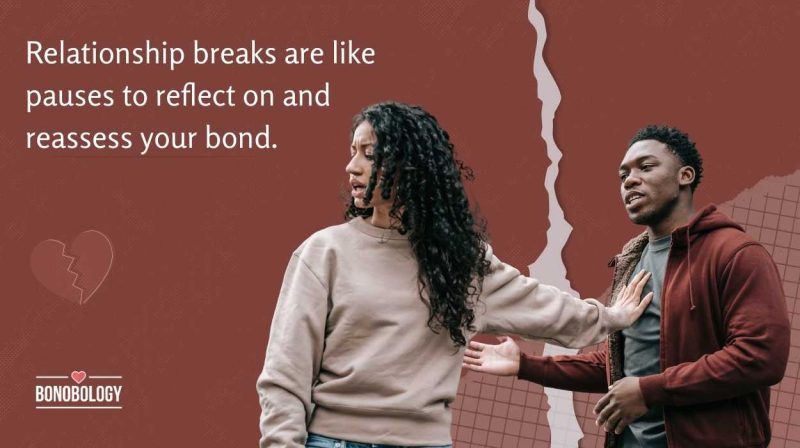
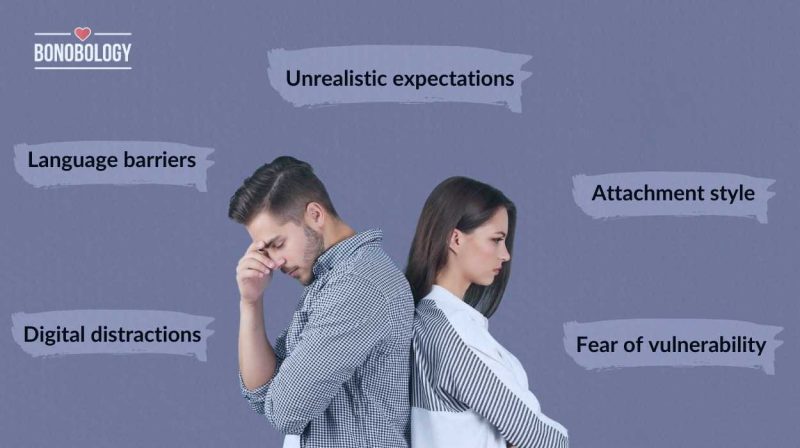
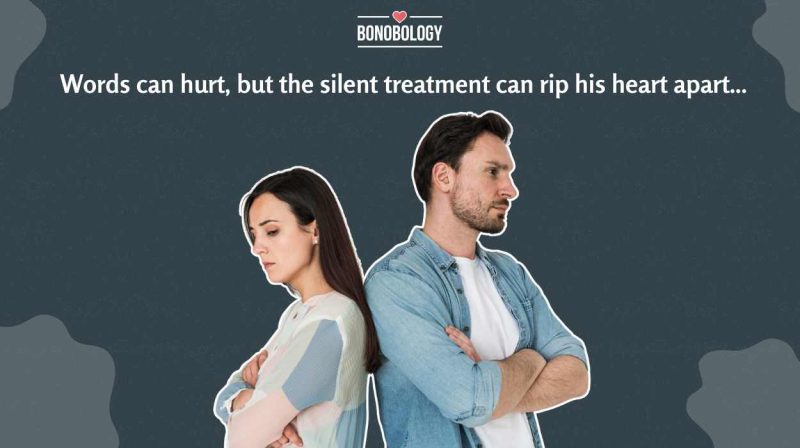
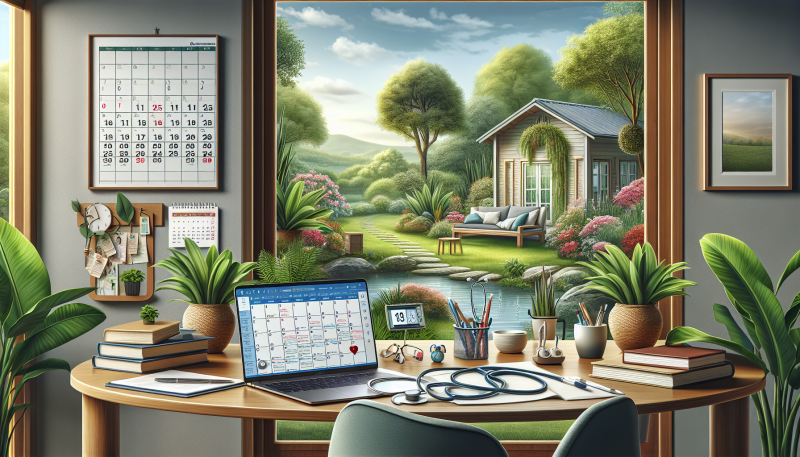
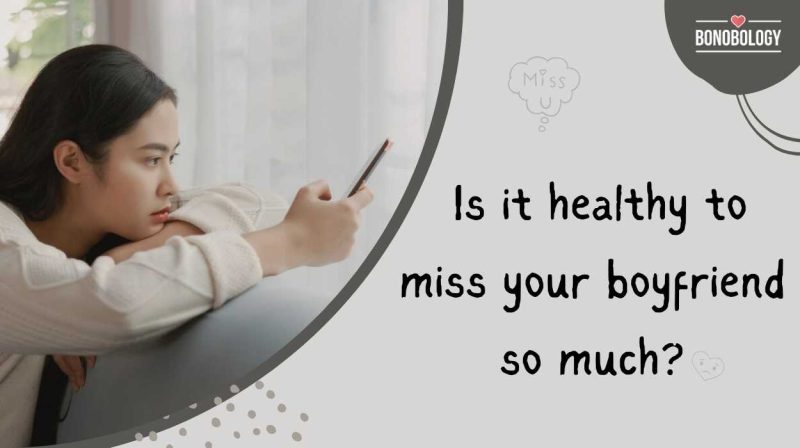
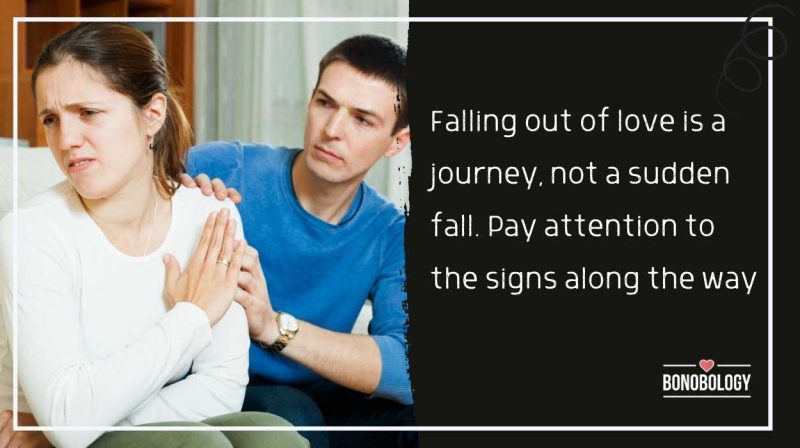
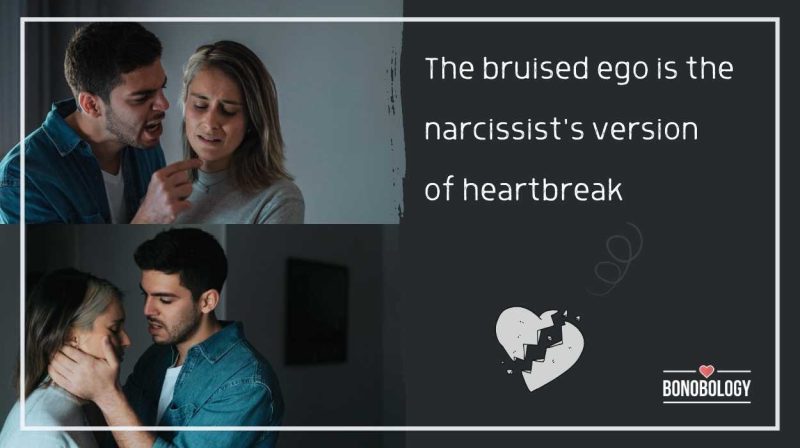
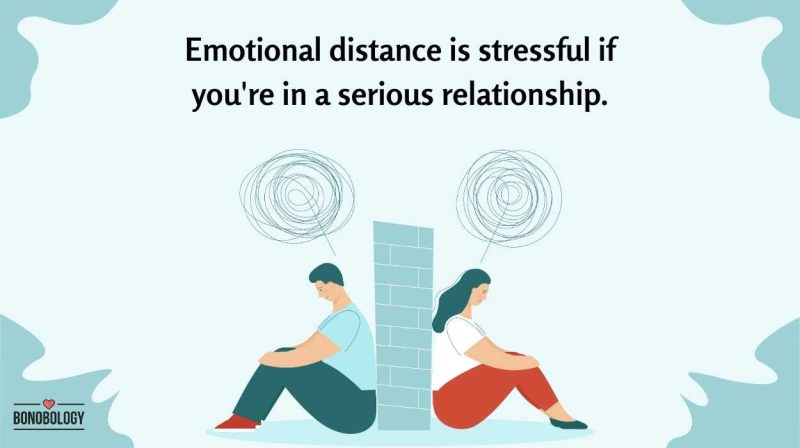
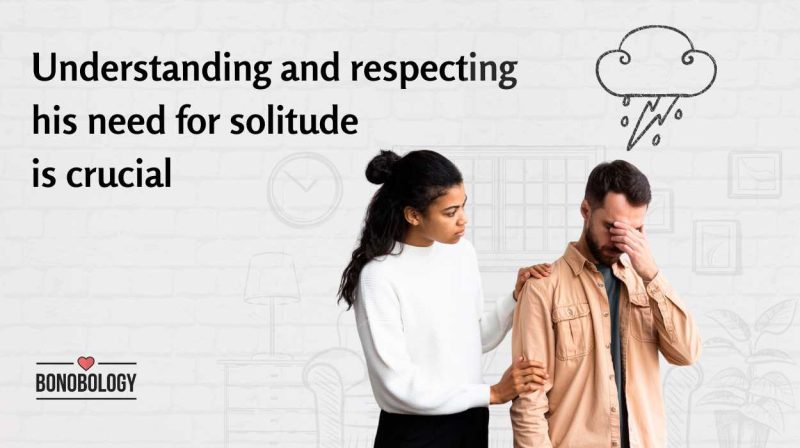
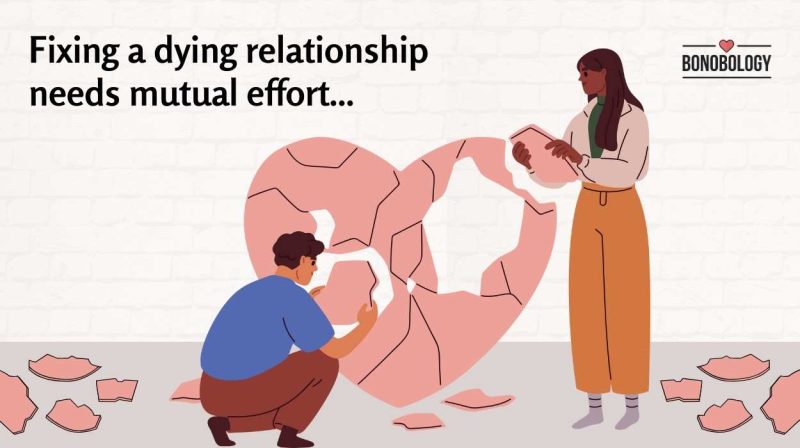
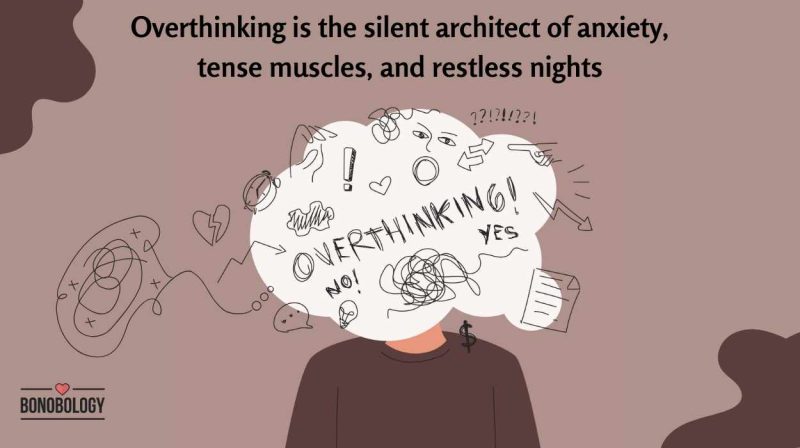
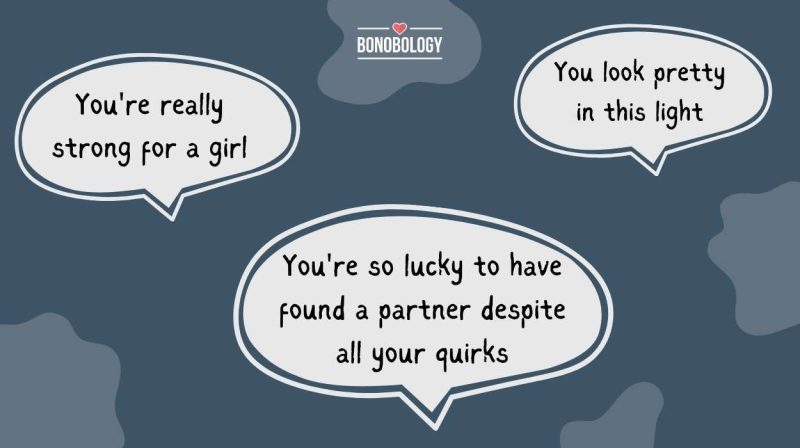
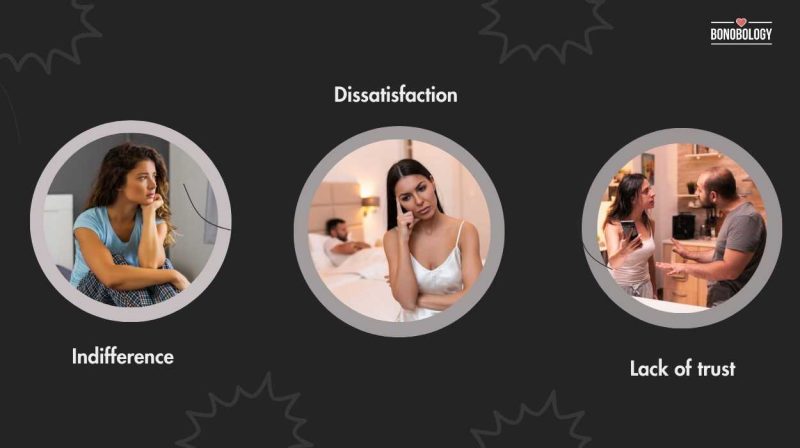
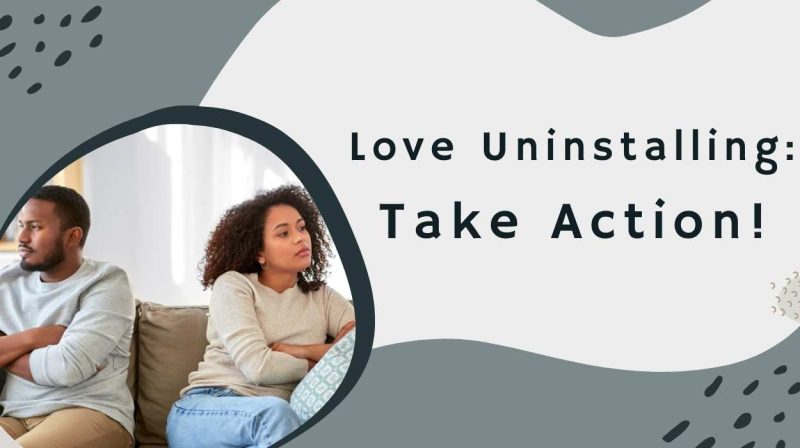

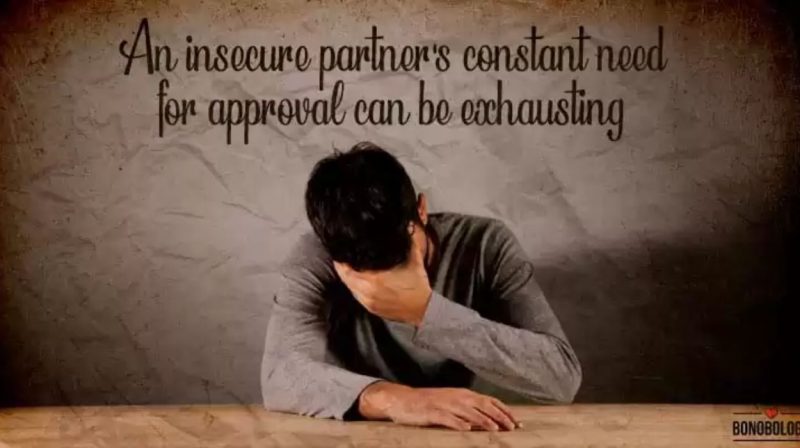
Featured
What Is A Break In A Relationship And How To Navigate It
Emotional Abandonment In Marriage: Signs, Causes, And Ways To Cope
15 Signs That Your Girlfriend Isn’t Sexually Attracted To You
Feeling Suffocated In A Relationship: Reasons, Signs, Ways To Deal
How Long Should A Relationship Break Be? A Therapist Answers
Why Do I Struggle To Communicate With My Partner? An Expert Answers
Will He Come Back After Silent Treatment? 15 Ways To Make Sure He Does
How Online Nursing Degrees Influence Relationship Dynamics
Why Do I Miss My Boyfriend So Much: Reasons And Ways To Deal
21 Clear Signs She Doesn’t Want A Relationship With You
How Narcissists Treat Their Exes — 11 Common Things They Do And How You Can Respond
Emotional Distance: Meaning, Causes, Signs, And Ways To Fix
My Boyfriend Is Grieving And Pushing Me Away: Tips To Cope And Comfort Your Man
What To Do When Your Relationship Is At Breaking Point?
Am I Overthinking Or Is He Losing Interest? 18 Signs To Help You Identify
23 Backhanded Compliment Examples in Everyday Life That Are Actually Insults
11 Things That Happen When A Woman Shuts Down Emotionally – And How To Reconnect
15 Signs Of Emotional Detachment In Your Relationship
How To Not Be Jealous In A Relationship – 15 Expert Tips
11 Ways An Insecure Partner Drains A Relationship And 5 Ways To Fix It